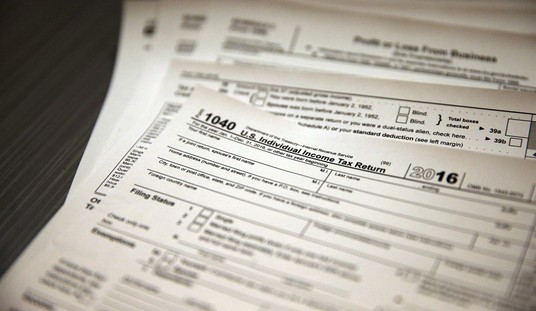We all know how far President Obama’s approval rating has fallen, 13 months after his re-election. Gallup had a fascinating look at who exactly has lost faith in Obama, among poll respondents who approved of him a year ago. And prominent among the groups with the biggest drop is the supposed bedrock of the Permanent Democrat Majority™ – self-identified Hispanic voters.
As always, bear in mind that Gallup is only one pollster, and not the most reliable one at that, and that sub-samples tend to be smaller sample sizes than an entire poll. That said, a comparison between two polls by the same pollster at different points in time is an apples-to-apples comparison, and so of some use in tracking trends. I’d supplement this with similar data from other pollsters, but surprisingly few of the daily, weekly or monthly presidential-approval tracking polls provide this kind of breakdown on a regular basis (although a mid-November Quinnipiac poll showed Obama’s approval underwater with Hispanics, 41-47, compared to 67-18 approval a year ago). That’s precisely why Gallup’s results are so interesting.
Here’s Gallup’s chart, which measures the net drop in points among different groups in their approval of Obama between his post-spring-2009 high water-mark in December 2012 and November 2013:

Bearing in mind that some of these are overlapping groups, you can see not only that Hispanics register a 23-point drop in approval, the largest of any group, but others near the top are also essential elements of any winning Democratic coalition: the youngest voters (18-29 year olds), the poorest (incomes under $24,000), the least educated (high school or less), various stripes of moderates and independents, women, the unmarried, the irreligious and voters in the Northeast and Midwest. Obama has lost the least support among those where he had the least support to start with: conservative Republicans, conservatives, Republicans. He’s dropped at least 8 points among everyone else.
But a second way to look at these numbers is in percentage terms, to adjust for the fact that it’s easier to lose more support among groups where you had more to start with. So, here are those figures:
| VOTER SEGMENT | 12-Dec | 13-Nov | % Decline |
|---|---|---|---|
| Independents w/no party leaning | 41 | 28 | -32% |
| Liberal/Moderate Republicans | 26 | 18 | -31% |
| Hispanics | 75 | 52 | -31% |
| Independents | 49 | 34 | -31% |
| Conservative Republicans | 7 | 5 | -29% |
| Less than $24,000 income | 64 | 46 | -28% |
| High sch education or less | 54 | 39 | -28% |
| Republicans | 11 | 8 | -27% |
| Midwestern residents | 52 | 38 | -27% |
| Moderates | 61 | 45 | -26% |
| Non-Hispanic whites | 42 | 31 | -26% |
| Eastern residents | 59 | 44 | -25% |
| 18- to 29-year-olds | 61 | 46 | -25% |
| Women | 57 | 43 | -25% |
| Attend Church weekly | 45 | 34 | -24% |
| Not married | 62 | 47 | -24% |
| 50- to 64-year-olds | 52 | 40 | -23% |
| Conservatives | 26 | 20 | -23% |
| ALL AMERICANS | 53 | 41 | -23% |
| Seldom/Never attend church | 58 | 45 | -22% |
| 30- to 49-year olds | 54 | 42 | -22% |
| Attend church monthly | 54 | 42 | -22% |
| Married | 45 | 35 | -22% |
| $24,000 to <$60,000 annual income | 51 | 40 | -22% |
| Southern residents | 48 | 38 | -21% |
| Nonwhites | 82 | 65 | -21% |
| Men | 49 | 39 | -20% |
| Postgraduates | 60 | 48 | -20% |
| $90,000 or more annual income | 50 | 40 | -20% |
| Western residents | 56 | 45 | -20% |
| 65-year-olds and older | 44 | 36 | -18% |
| Some college education | 50 | 41 | -18% |
| College graduate only | 50 | 41 | -18% |
| Moderate Democrats | 89 | 73 | -18% |
| Conservative Democrats | 79 | 65 | -18% |
| Liberals | 84 | 70 | -17% |
| $60,000 to <$90,000 annual income | 49 | 41 | -16% |
| Democrats | 91 | 78 | -14% |
| Liberal Democrats | 93 | 82 | -12% |
| Blacks | 92 | 83 | -10% |
Here, we see unaffiliated independents – perhaps unsurprisingly – at the top of the list, along with liberal Republicans, but Hispanics in a very close third place, with the poor, the uneducated and Midwesterners also high on the list (the latter is a danger sign for Democrats in Michigan, Iowa, and Minnesota next fall). By contrast, on a percentage basis, the three least-shaken elements of Obama’s base are – unsurprisingly – black voters, among whom he’s lost just 10% of his prior support, and liberal Democrats and Democrats as a whole, the only other two groups to show less than a 16% decline – and the dropoff among those two groups would doubtless be higher if you excluded his unshakeable support among black voters.
And bear in mind, these are losses among people who approved of the job Obama was doing after watching him in office for four years. These aren’t voters who reject liberals or Democrats out of hand, or – if you buy into the excuse for every criticism of Obama – voters who don’t like him because he’s black. Most of them likely voted for the man, twice. And the most likely reason they are turning on him is simply because he’s not getting the job done – his policies aren’t working, the economy continues to disappoint, and he still isn’t delivering the things he promises. As the LIBRE Initiative’s Executive Director, Daniel Garza, put it, after noting that the November Quinnipiac poll had showed just 44% approval among Hispanics for Obamacare:
The dramatic drop in support from the U.S. Hispanic community should not come as a surprise to anyone. Instead of effectively addressing Immigration, the slow economy, the lack of access to affordable care, and other critical issues over these past five years, President Obama has delivered mostly empty rhetoric and a record of stagnant Unemployment , diminished household incomes and a tepid GDP growth rate. Americans deserve better.
It is not too late for a real agenda focused on private sector job growth, market-based health reform that empowers doctors and patients, and true bipartisan cooperation on Immigration reform. For too long now Hispanics have been called on by this Administration for political points, and our community is tired of the broken promises and bad policies that have left many of us worse off.
The immediate lesson here is that, for all the Democrats’ bluster, Hispanics are simply not African-Americans. They may have identified to some degree with him against his critics as the first non-white President, they may like some of the things the Democrats stand for, and they may even feel – not without reason – that Republicans want to kick them out of the country. But none of that alone is enough to make them permanent Democratic partisans if they don’t see results.
Republicans face a variety of challenges in appealing to Hispanic voters, even moreso than some of the other voter groups that are increasingly disenchanted with Obama. They will not be cheap dates for the GOP. But Democrats are learning that they are growing increasingly tired of being told to just sit back and pull the lever for Obama’s pursuit of MacGuffins. Republicans have an opportunity, if they will work for it.












Join the conversation as a VIP Member